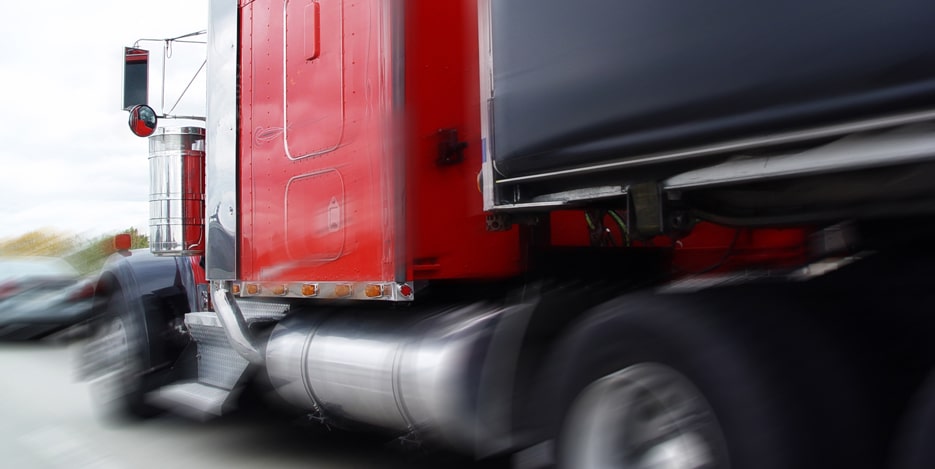
Hartford Truck Accident Attorneys
Protecting the rights of Hartford & Manchester, CT truck accident victims
When a trucker hops into the driver’s seat of their 18-wheeler, they do so with the understanding that handling their vehicle safely and obeying all the rules of the road is a critical part of their job. Commercial trucks can weigh upwards of up to 40 tons, and an accident with one can leave a car in shambles and its passengers with catastrophic injuries.
If you were involved in an accident with a tractor-trailer, talk to the truck accident attorneys at Barry, Taylor & Levesque, LLC. We’ll help you bring a strong claim against the driver or trucking company responsible for your accident and injuries, and seek full compensation for your damages and losses. Our years of experience here in Hartford and the surrounding areas give us a local edge, and we never stop working for you.
Truck accident statistics in Hartford and across Connecticut
Commercial trucks (tractor-trailers, 18-wheelers, big rigs, etc.) are much larger vehicles than your average light truck or SUV. These include tow trucks, delivery trucks and other types of cargo, work or construction trucks. According to the Insurance Institute for Highway Safety (IIHS), more than 4,000 people were killed in truck accidents in 2017. This number is 30 percent higher than it was 10 years ago.
Here in Hartford County, we see a lot of truck traffic on I-91, I-84, I-291 and our local Hartford and Manchester roads and highways. It doesn’t matter where or how your accident occurred – we can help prove who or what caused it and work to hold them accountable for your losses.
Why do Hartford truck accidents happen?
A tractor-trailer accident can happen for a variety of reasons. And, because of the sheer size of a truck, occupants of passenger vehicles tend to sustain much more severe harm, like paralysis or traumatic brain injuries. When we work on your case, we investigate all aspects of your accident to discover the cause. Common causes of truck accidents include:
- Defective truck parts. Sometimes a truck accident isn’t the fault of the trucker at all. Mechanical issues like faulty brakes or defective tires that blow out can cause unexpected loss of control, resulting in accidents.
- Distracted driving. Distracted driving puts everyone on the road at risk. However, the sheer size of a tractor-trailer can make distracted driving instantly fatal. Long-distance trucking tends to be monotonous, and sometimes a trucker can zone out or become reliant on their smartphone. Driving distracted is dangerous and illegal for everyone.
- Drowsy driving. Driver fatigue is a common and dangerous issue with truckers. The IIHS reports that drivers behind the wheel for more than eight hours are twice as likely to crash. Although federal law requires drivers to spend at least 30 minutes off-duty for every eight hours of driving, many drivers and trucking companies may skirt around those regulations.
- Drunk or drugged driving. Driving while impaired, especially while behind the wheel of a truck, can cause disastrous consequences. A drunk or drugged truck driver’s judgment and reflexes are compromised, which can cause them to lose control of their 40-ton vehicle and cause an accident.
- Faulty or improper maintenance. Both federal and Connecticut law requires that commercial trucks are regularly inspected and maintained. If any safety issues are discovered during routine maintenance, a truck should not go back into service until it’s properly repaired. Often, the cause of an accident can be traced back to the lack of a necessary repair.
- Improperly loaded cargo. When a truck is overloaded or loaded improperly, the trailer can become unbalanced. Overloaded trucks may more easily roll over or spill its cargo, causing highway chaos and car crashes.
- Inadequate driver training. Truckers undergo special training and require a professional driver’s license in order to haul cargo. Part of this training is learning basic truck maintenance, emergency procedures, how to maneuver and park safely, and how to load and unload their trailers. When a company hires unqualified or inexperienced drivers, they can be putting everyone at risk.
- Reckless or careless driving. Everyone, including truckers, must follow all Connecticut traffic laws. Disregarding those laws by speeding, running red lights or tailgating can lead to tragic accidents. Truckers should always be aware of their surroundings and only stick to commercial truck-approved roads.
What are the Types of compensation for truck accident injuries?
If you’re in a Hartford truck accident that wasn’t your fault, it’s likely you’re eligible for compensation for your injuries and losses. Every accident, every person and every situation is unique, but we fight to secure financial compensation for our clients’:
- Past and future medical expenses
- Lost wages and future earning capacity
- Property damage (depending on circumstances)
- Pain and suffering
Medical bills and expenses can encompass things like your hospital and doctor visits, physical therapy, surgeries, treatments and medications. Pain and suffering is designed to compensate you for non-financial consequences of your injuries, including:
- Chronic pain
- Depression or anxiety
- Disfigurement
- Restricted or limited activity
- Loss of opportunities
In extreme cases, the court may award punitive damages to the victim. Punitive damages are meant as both a punishment to the guilty party and a deterrent for future reckless behavior.
Tenacious Hartford, CT truck accident attorneys
If you or a loved one was injured in a truck or tractor-trailer accident, the injury lawyers at Barry, Taylor & Levesque, LLC can help. We have the experience, the resources and the strategies to find out who or what was responsible for your accident and injuries – and work to secure you the compensation you deserve. Contact us today. We’re located right off I-84 or I-384 in Manchester. To schedule a free consultation with one of our truck accident injury lawyers in Hartford or Manchester, please call 860-649-4400 or fill out our contact form.
